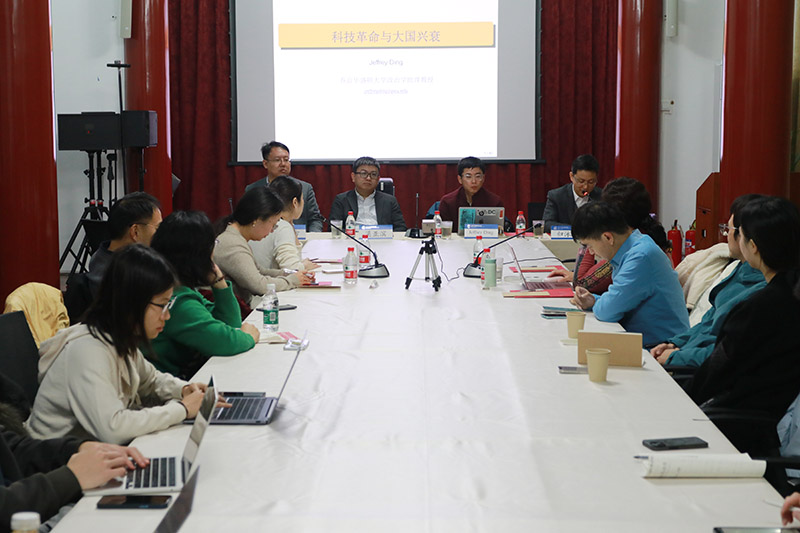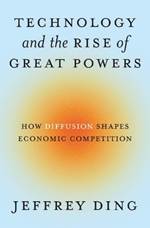On the evening of December 10, 2024, the lecture titled “Technology and the Rise of Great Powers: How Diffusion Shapes Economic Competition” was successfully held in a hybrid format, both in person at Peking University’s North Pavilion and online. The event was co-hosted by the Princeton University Press China Office, the School of International Studies, Peking University, and the Institute of International and Strategic Studies (IISS), Peking University.

Jeffrey Ding, Assistant Professor of Political Science at George Washington University, served as the keynote speaker. The discussants included Prof. Liang Yabin from the Institute for International Strategic Studies, Party School of the CPC Central Committee, and Jia Zifang, Lecturer at the Institute of International Relations, China Foreign Affairs University. The session was moderated by Associate Prof. Gui Yongtao, Vice Dean of the School of International Studies and Vice President of IISS, PKU. Over 400 participants attended the event online and in person.
Jeffrey Ding introduced the main arguments of his book Technology and the Rise of Great Powers: How Diffusion Shapes Economic Competition. He noted that while traditional theories emphasize innovation as the key to the rise and fall of great powers in the context of technological revolutions, his new framework highlights the crucial role of general-purpose technology (GPT) diffusion. According to his theory, countries better able to diffuse engineering skills and knowledge related to GPTs are more likely to enhance their economic strength during waves of technological revolution.
The two discussants offered their reflections from various perspectives, including large-scale technology deployment and the diffusion of artificial intelligence as a general-purpose technology. In the Q&A session, the speakers engaged with the audience on topics such as the concept of technological diffusion, the comparative roles of innovation and diffusion, great-power cooperation in science and technology, and the global governance of emerging technologies.

The book Technology and the Rise of Great Powers: How Diffusion Shapes Economic Competition was published by Princeton University Press in 2024. Through case studies of past industrial revolutions and statistical analysis, the book explores why some countries have been more successful than others in adapting to and widely applying new technologies. It proposes a new theory on how emerging technologies drive shifts in economic power among great powers.
This lecture marked the fourth session in the Frontiers in International Relations Theory academic series, jointly organized by Princeton University Press China Office, the School of International Studies, Peking University, and the Institute of International and Strategic Studies (IISS), PKU.
Editor: Li Fangqi
Photographer: Zheng Peijie

